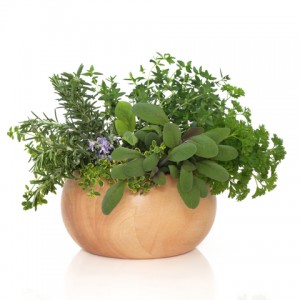 I often have a discussion with my patients about the health of their colon. Why? Colon cancer is the third most common cancer diagnosed in the United States. The American Cancer Society states we have a 1 in 20 chance of developing colon cancer in our lifetime. This is likely due, partially, to diets poor in nutrition and fiber, toxins in our water and food, and other lifestyle habits like too much alcohol and/or smoking.
I often have a discussion with my patients about the health of their colon. Why? Colon cancer is the third most common cancer diagnosed in the United States. The American Cancer Society states we have a 1 in 20 chance of developing colon cancer in our lifetime. This is likely due, partially, to diets poor in nutrition and fiber, toxins in our water and food, and other lifestyle habits like too much alcohol and/or smoking.
When I talk to my patients about their colon health, I approach the discussion from the proactive stance of preventing colon disease. I stress to them that one of the most important things they can do is to ensure that they get optimal amounts of antioxidants in their diet through the foods they eat as well as supplements. I’d like to share with you what I tell my patients about one antioxidant that has particular significance for your colon health – luteolin.
Luteolin – Superantioxidant for Colon Health
You may already know that eating a diet rich in antioxidants from fruits, vegetables, and supplements, can protect you from developing many diseases. Antioxidants fight oxidative stress and the damage that free radicals cause your DNA like inflammation, allergies, toxic aging and disease. There are several hundred antioxidants available in the foods we eat and all are beneficial in protecting your health but luteolin is one of the superantioxidants, however.
Luteolin is actually a plant pigment called a flavonoid, or more exactly, a flavone. Not to be confused with lutein, an eye-health vitamin, luteolin is 2 times stronger than the powerful antioxidants Vitamins C and E. It actually helps your body recycle C and E for more efficient use of them.
Here are some of the many health-preserving benefits luteolin gives:
- Supports nerve and muscle function
- Reduces inflammation that causes joint pain and stiffness
- Increases metabolism and efficient use of carbohydrates
- Lowers blood sugar levels by optimizing insulin output, fights insulin resistance and Syndrome X (helps type 2 diabetes).
In addition, Luteolin has been shown in recent research to particularly benefit colon health. Researchers out of Hallym University in Korea recently studied the effects of luteolin on human bowel cancer cells grown in the laboratory. The study revealed that the luteolin was capable of killing bowel cancer cells by stopping them from dividing. The researchers felt this was due to luteolin interfering with a process called the IG-R pathway that is overactive in bowel cancer. This pathway allows cancer cells to grow and divide and prevents them from dying off naturally. Luteolin, however, interrupts this destructive process and causes the cancerous cells to die naturally. The researchers concluded that, although these are very early preliminary studies and findings, luteolin may indeed be an efficient, future treatment for bowel cancer. Further studies are ongoing at this time.
Make the Most of Luteolin Research
Although the study referred to above made use of pure luteolin, in perhaps higher, more concentrated doses than what may be available in the foods we eat, still the findings of the research are significant. The study points to the fact that getting adequate amounts of luteolin from the foods we eat, and supplements we take, can likely help prevent bowel cancer, and perhaps other cancers, from developing.
To make the most of the findings of recent luteolin research and preserve your colon health, here are some things you can do:
- Include several servings of the many luteolin-rich foods including: the spices sage, rosemary, thyme, peppermint; the vegetables parsley, celery hearts (green), artichokes, hot peppers, rutabagas, spinach, the herb chamomile, and the fruits olives (and olive oil) and lemons. It is also present in smaller quantities in many other food products.
- For added insurance, take a 50-100 mg capsule of luteolin supplement a day.
- Take probiotics to help preserve the correct balance of intestinal flora to rid toxins.
- Eat 25-30 grams of fiber a day. Fiber helps sweep excess fat and toxins from colon.
- Drink half your weight in water each day to help rid your colon of toxins.
- Exercise 30 minutes every day. Strengthens intestinal muscles for elimination of toxins.
- Cut down on alcohol consumption. Stay away from cigarette smoke and other toxins.
- Take 2 tablespoons fresh or pure, bottled lemon juice (no sweeteners) in hot water every morning. Drink 15 minutes before eating.
- Use a rub of olive oil, sage, garlic on poultry (chicken and turkey) while roasting.
- Enjoy a cup of peppermint tea after meals.
As I tell my patients, nature has provided us with all the nutrients we need to stay healthy, if we will only make use of them! I believe that further research will prove luteolin to be a viable treatment for bowel cancer. In the meantime, we can do our best to keep our colon healthy by including this incredible flavonoid in our foods and supplements.
Stay Well,
Mark Rosenberg, M.D.
USDA Flavonoid Content of Vegetables, http://www.nal.usda.gov/fnic/foodcomp/Data/Other/EB03_VegFlav.pdf
Does Fruit and Vegetable Chemical Fight Cancer?
photo credit: marilyna barbone
